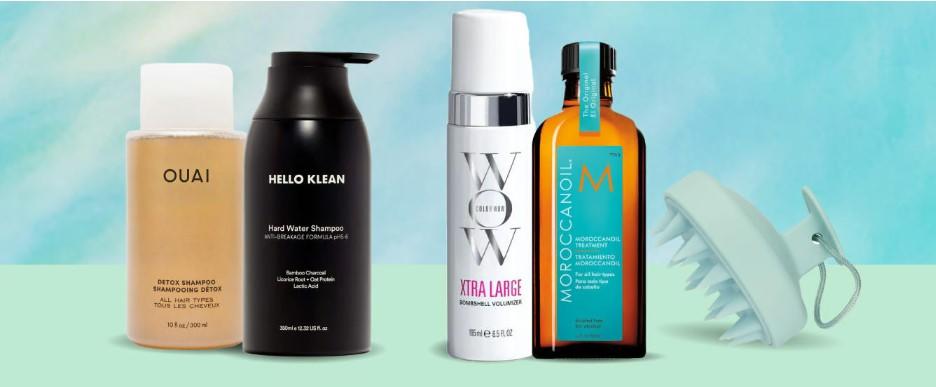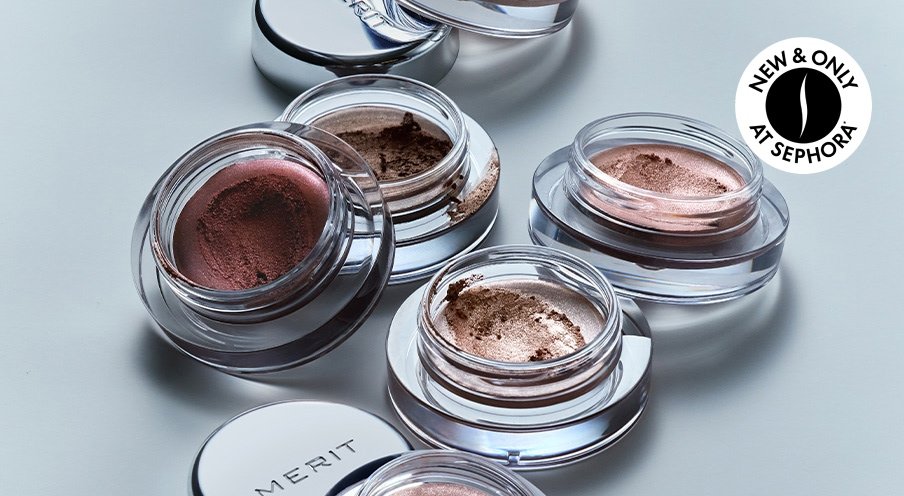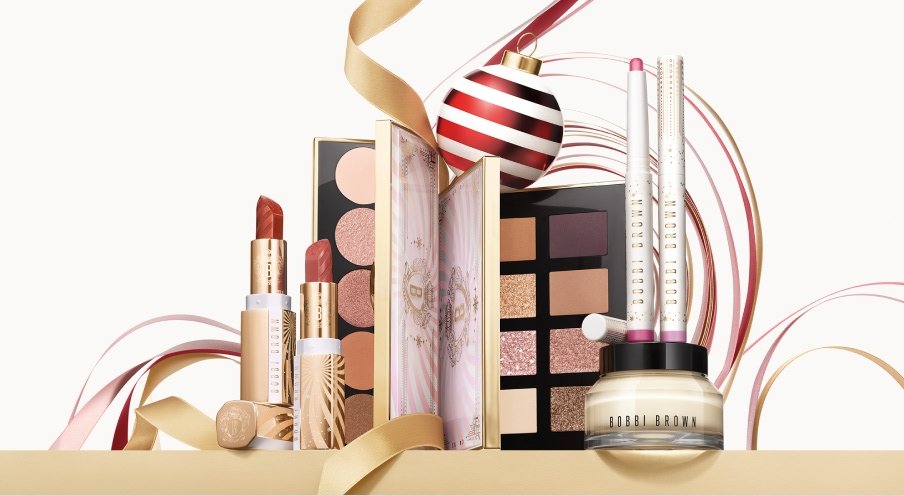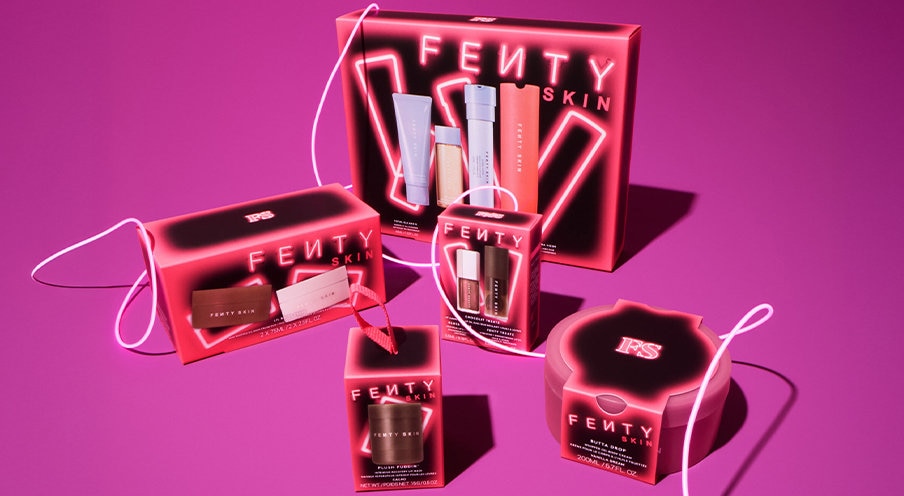The Ultimate Hair Care Glossary

Afro Hair
Afro hair, also known as Type 4 hair, is characterised by its tight curls and spongy texture. It's naturally dry and delicate, with strands growing in a coil-like pattern, which gives it a voluminous, 'afro' appearance.
For afro hair, you want to use products which provide deep hydration, strengthen hair, and prevent breakage, such as sulphate-free Shampoos and Conditioners. Deep, leave-in conditioners help to detangle hair and butter creams define curls - so you can let your natural style shine.
Anti-dandruff
Anti-dandruff refers to the prevention or treatment of dandruff, a common scalp condition characterised by flaking of the skin on the scalp. Dandruff can be caused by a variety of factors, including dry skin, sensitivity to hair products, and fungal factors.
Hair care products that contain moisturising or active ingredients such as Pyrithione Zinc help to manage dandruff. Get to the root of the problem by opting for shampoos containing the antifungal agent Ketoconazole to help control flaking, scaling, and itching. Coal Tar can slow the overproduction of skin cells; and Selenium Sulphide helps to prevent and treat dandruff and seborrheic dermatitis. If you have severe or persistent dandruff, consult a dermatologist or hair care professional.
Coloured Hair
Coloured hair refers to hair that has been dyed or highlighted with artificial colour. This process can range from subtle changes, like adding a few highlights, to dramatic transformations, like changing from black to platinum blonde - the bolder the better.
For maintaining the health and vibrancy of coloured hair, extra care is required. Who doesn’t love an at-home hair treatment? These help to repair damage caused by the colouring process, strengthening hair, and reducing breakage. Our top tips? Look for shampoos and conditioners with smart, targeted delivery systems to help seal in colour and prevent fading; try to limit heat styling; and use hair oils and serums to provide hydration and the healthiest looking shine.
Coily Hair
Coily hair, also known as kinky or Type 4 hair, is typically classified into three types: Type 4A, 4B, and 4C.
1. Type 4A hair has tight, well-defined, spiral curls that have the circumference of a crochet needle. These have a visible 'S' pattern when stretched.
2. Type 4B hair has a less defined pattern of curls and looks more like a 'Z' as the hair bends with very sharp angles.
3. Type 4C hair is similar to 4B but with tighter curls. The curl pattern may not be as defined and it can feel more wiry or coarse - hydrating products are your heroes.
This hair type is often fragile and prone to dryness and shrinkage, requiring specific care to maintain its health and enhance its natural texture. Look for products that nourish and provide intense moisture. When possible, avoid harsh sulphates and opt for gentle, sulphate-free shampoos. These will soften and detangle your coils, helping your hair to shine from the inside out.
Curly Hair
Curly hair, also known as Type 3 hair, forms defined curls with a spiral shape and is typically classified into three types: Type 3A, 3B, and 3C.
1. Type 3A hair has loose, large curls that are well-defined and springy.
2. Type 3B hair has medium-sized curls that are usually the size of a marker pen. They can be springy and voluminous.
3. Type 3C hair has tight corkscrew curls that can be either kinky or very tightly curled. The curls are densely packed together, giving the hair lots of volume.
The best curly hair products are those that provide moisture, reduce frizz, and define curls. Moisturising shampoos can help hydrate curly hair, which tends to be naturally dry. We love a weekly deep conditioning treatment for hair manageability, and lightweight hair oils can help add shine without weighing curls down. We're all about bringing back your bounce.
Damaged Hair
Damaged hair refers to hair that has been physically or chemically altered, leading to a loss of natural moisture and protein. This can result in symptoms such as dryness, dullness, split ends, breakage, and frizziness. Damage can be caused by various factors, including excessive heat styling, chemical treatments, and environmental stressors.
To repair and protect damaged hair, at-home treatments and nourishing hair masks are your best friend. These products are designed to rebuild and fortify hair while reducing breakage and restoring hair’s elasticity. Remember, to prevent further damage, reduce heat styling, use a heat protectant when necessary, and get regular trims to remove split ends. We’re taking notes.
Dry Hair
Dry hair indicates a lack of moisture and natural oils in the hair strands and scalp, leading to a brittle, dull, and lifeless appearance. It can be caused by various factors, including environmental conditions, excessive heat styling, over-washing, and using harsh hair products.
Treat and prevent dry hair by using products infused with antioxidant-rich Argan Oil and replenishing nutrients. These help to hydrate and revitalise hair, locking in moisture with a blend of silk proteins. Intensive treatments and conditioners that are free from harsh chemicals deeply moisturise dry hair while increasing shine - our hair heroes.
Greasy Hair
Greasy or oily hair presents itself as an excessive production of sebum from the scalp, leading to a heavy, shiny, and often sticky appearance. It can be caused by various factors, including hormonal changes, diet, stress, and over-washing or under-washing your hair.
Clarifying shampoos help to minimise oil production by removing the heavy, dulling residue caused by shampoos, conditioners, and styling products. Our secret weapon when we don’t have time to wash? Dry shampoo absorbs and removes oil, sweat, and odour, making your hair look and feel clean.
Try to wash your hair every other day or less, if possible, so you don’t strip the scalp of its natural oils and cause it to produce more oil in response.
Hair Loss
Hair loss, also known as alopecia, is characterised by the shedding or thinning of hair from the scalp or body. It can be caused by various factors, including genetics, hormonal changes, stress, illness, ageing, and nutritional deficiencies.
Look for hair treatments that help to slow or stop hair loss, instead promoting hair regrowth. Shampoos designed for hair thinning and loss help to remove follicle-clogging sebum, fatty acids, and environmental residues from the scalp skin and hair. Some clinically tested formulas are proven to reduce hair thinning due to breakage, increase volume, strength, and shine.
Hair Thinning
Hair thinning refers to moderate to severe hair loss that results in less volume and density. It can be caused by various factors, including ageing, hormonal changes, stress, and certain medical conditions or treatments.
For managing and preventing hair thinning, choose shampoos and conditioners that help to cleanse, optimise, and treat the scalp and hair, while providing thicker, denser-looking hair. Find hair care products that help to nourish thinning hair and promote existing hair growth.
Heat Protectant
A heat protectant is a hair care product designed to shield your hair from the damage caused by heat styling tools such as blow dryers, straighteners, and curling irons. It works by creating a protective barrier over the hair cuticle, reducing moisture loss, and preventing breakage and frizz.
Heat protectant sprays are ideal for instant protection. Often weightless, these can protect against heat styling up to 450°F while smoothing and reducing frizz. Spray onto hair to tame flyaways and make hair enviably soft.
Oily Hair
Oily hair is characterised by an overproduction of sebum, the natural oil produced by sebaceous glands in the scalp. This can result in hair that looks greasy or dirty even soon after washing, and it can be caused by various factors including genetics, hormonal fluctuations, and certain hair care habits.
Gently remove excess oil from the hair with products formulated with ingredients such as Lemon Tea Tree Oil and Lemon Peel extract. Shampoos with this fresh, lemony scent deeply cleanse the hair and scalp by absorbing oil and purifying roots - yes please.
Scalp Care
Scalp care refers to the process of maintaining the health of the scalp, which includes keeping it clean, moisturised, and free from dandruff or other skin issues. A healthy scalp is crucial for healthy hair growth, as it provides the necessary environment for hair follicles to thrive.
To us, scalp care is a moment of self-care. Maintaining a healthy scalp depends on the hair care products you use. For example, shampoo containing Ketoconazole is an effective ingredient for treating dandruff. You can use purifying scrubs with Sea Salt to remove buildup from the scalp and soothe itchiness, or shampoos with Tea Tree Oil to promote a healthy environment for hair growth.
Split Ends
Split ends, also known as trichoptilosis, occur when the protective outer layer of the hair cuticle wears away due to external stressors such as heat styling and chemical treatments. This results in the hair shaft splitting into two or more parts, leading to dry, brittle, and frayed hair strands.
Reduce breakage and visibly strengthen hair with at-home treatments, which improve the look and feel of your hair while reducing split ends. Those infused with Argan Oil promote softer hair with increased shine and less frizz. Some treatments help to seal split ends, protect colour-treated hair, and reduce friction from brushing resulting in longer, stronger strands.
Straight Hair
Straight hair, also known as Type 1 hair, is typically classified into three types: Type 1A, 1B, and 1C.
1. Type 1A hair is very fine and straight, without any waves or curls. This type can lack volume and may become oily very quickly.
2. Type 1B hair is straight but has more volume and body than Type 1A. It's not as flat as Type 1A and has a slight natural wave.
3. Type 1C hair is the thickest and coarsest of the straight hair types. It's straight with some body or a slight bend at the ends, and it's more resistant to curling than the other two types.
For straight hair, the best products are those that add volume, reduce oiliness, and maintain shine. Volumising shampoos and conditioners are great for adding body, especially for Type 1A and 1B. Our lifesaver for straight hair types that get oily fast? Dry shampoo, helping to absorb excess oil at the roots. And use a clarifying shampoo once a week or every two weeks to remove product buildup.
Sulphate-free Shampoo
Sulphate-free Shampoo
Sulphate-free shampoos are hair cleansers that don’t contain sulphates, which are harsh detergents that create lather and strip hair of its natural oils, potentially causing dryness, brittleness, and irritation. Sulphate-free shampoos are gentler, making them a better choice for those with sensitive scalps, dry hair, or colour-treated hair.
Opt for sulphate-free shampoos that gently cleanse and remove impurities without stripping colour. These refresh and rebalance hair while delivering intense hydration and shine, leaving it nourished, manageable, and strong.
Textured Hair
Textured hair refers to hair that has a patterned structure, which can range from waves to curls to kinks and coils. This type of hair is often prone to dryness and requires specific care to maintain its health and enhance its natural texture.
When possible, use sulphate-free shampoos and conditioners designed to define curls, reduce frizz, and smooth hair for a soft, silky feel. Cream conditioners help to retain moisture, strengthen strands, and make hair shiny and manageable. Styling products add bounce back to curls, while detanglers smooth the cuticle, removing knots and tangles painlessly.
Wavy Hair
Wavy hair, also known as Type 2 hair, forms loose, S-shaped waves and is typically classified into three types: Type 2A, 2B, and 2C.
1. Type 2A hair is fine and thin with a slight 'S' pattern, often being easy to handle in terms of styling.
2. Type 2B hair has waves that tend to adhere to the shape of your head, being a bit frizzier and harder to style.
3. Type 2C hair is wavy and voluminous with a more defined 'S' pattern that starts at the roots, often being thicker, coarser, and the frizziest of the Type 2 category.
The best products for wavy hair are those that enhance the natural wave pattern, reduce frizz, and add moisture. Opt for hydrating shampoos and conditioners, curl enhancing creams or mousses, and anti-frizz serums or sprays.



_1760981819.jpg?202510231050)



_1746109986.jpg?202510231050)

_1756904841.jpg?202510231050)












